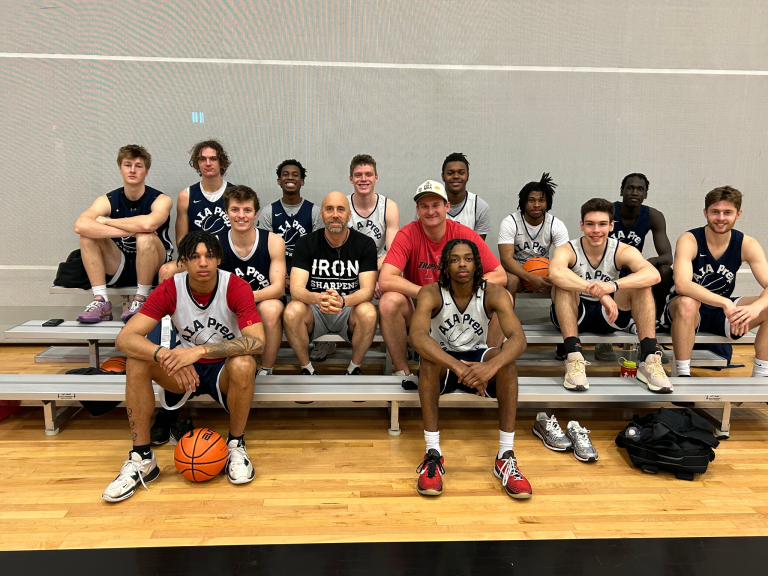Article
4 Ways to be an Accountable Athlete
Your actions have ripple effects for you and your teammates
Kate Rampone
never miss a play
Get weekly articles on sport culture, relationships, and identity.
The best teams are the ones who are deeply connected
As an athlete, you have been gifted by God with exceptional athletic abilities which, along with hard work and dedication, have brought you to where you are now. In 1 Peter 4:10, Peter says that “Each of you should use whatever gift you have received to serve others, as faithful stewards of God’s grace in its various forms.” You are not an island; when you join a team, your actions not only impact you, but they have a ripple effect beyond you to your teammates, coaches and fans. While talent and commitment are certainly necessary traits of a successful athlete, accountability and good character are arguably just as important, especially for a Christ-follower who has been given a platform to share beliefs and values and to act as a role model within his or her community.
When I think of what it means to be part of a community, Romans 12:5 comes to mind: “so in Christ we, though many, form one body, and each member belongs to all the others.” This means that we are accountable to more than just ourselves because we “belong to all the others.” That got me wondering about what that looks like in practice. In Ephesians 4, Paul lays out a comprehensive guide for how to act with accountability and good character within your community:
- “Build others up according to their needs, that it may benefit those who listen” (Ephesians 4:29). Build up your teammates, and not just in private. As a college athlete, you have been given a platform where young fans will see how you treat your teammates. Make sure you’re a good role model and show the importance of community and teamwork through not only your words, but your actions, too. When team members build each other up, even when it’s easier to point fingers after a tough loss, that’s how they strengthen the bond of their team.
- “In your anger do not sin” (Ephesians 4:26). When you’re using your talents to glorify God, it extends beyond the court, field or venue in which you perform. You can find examples all over of players acting in anger and getting a suspension as a result of their actions. It reflects poorly on their values and can have an impact on the outcome of their team’s next game or meet, which is why players need to be accountable to more than just themselves and act in good character, being grateful for the opportunity to be a part of the team.
“Do something useful with your own hands, that you may have something to share with those in need” (Ephesians 4:28).
Work together with your teammates to help the community through acts of service. In doing so, you will develop a bond that carries beyond the sport that you share, forging deeper connection. The best teams are the ones who are deeply connected—chemistry can go a long way and is vitally important for the success of any team.“Be kind and compassionate to one another, forgiving each other, just as in Christ God forgave you” (Ephesians 4:32).
To me, this is the all-encompassing principle of what it means to act with accountability and good character within a community. It embodies the ideals of building each other up, not acting in anger and being good stewards. It also takes it a step further, urging you to forgive others, just as God did. Instead of holding a grudge against a teammate (which affects your heart and the team chemistry), try acting in compassion, taking the time to understand their side, and moving past the bitterness to avoid acting in anger. It certainly isn’t the easy or natural route, but it is the most rewarding route and a sign of good character.
4 ways to be an accountable athlete
1. Build others up
2. IN YOUR ANGER, DO NOT SIN
3. DO SOMETHING USEFUL WITH YOUR OWN HANDS, THAT YOU MAY HAVE SOMETHING TO SHARE WITH THOSE IN NEED.
4. BE KIND AND COMPASSIONATE TO ONE ANOTHER, FORGIVING EACH OTHER, JUST AS IN CHRIST GOD FORGAVE YOU.
As you move from isolation into community, I encourage you to follow the principles Paul laid out in Ephesians 4. Your team is a close-knit community and it’s important to remember that your actions have a ripple effect, so be accountable to more than just yourself and always act in good character.
READ THE LATEST
Where sport culture, relationships, character, identity, and faith collide.

